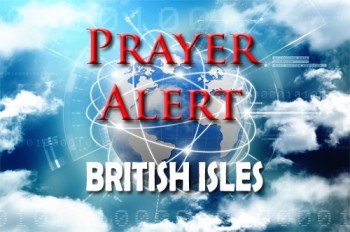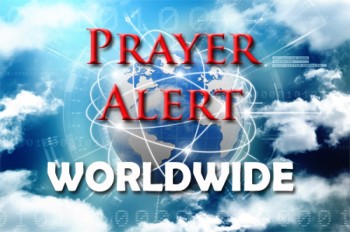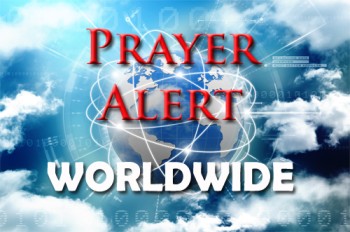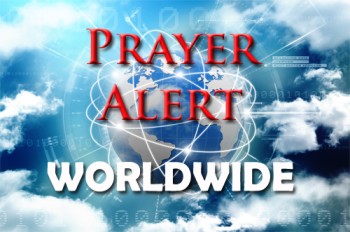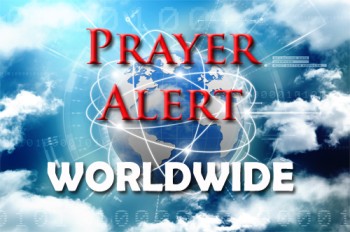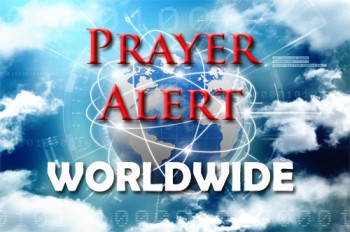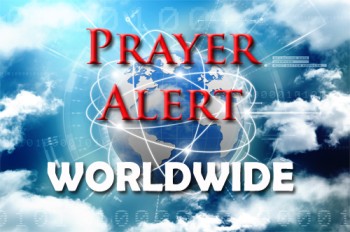Displaying items by tag: hunger
Foreign aid cuts ‘will leave an extra 369,000 children to starve’
Cuts to foreign aid by Western governments could result in 369,000 additional child deaths from severe malnutrition annually, according to a study in Nature. The reduction in overseas development budgets by the UK, USA, and other major donors is expected to create an 'unprecedented crisis.' Britain's aid budget will drop by 40% (approximately £6 billion) by 2027 to prioritise defence spending, prompting the resignation of development minister Anneliese Dodds. The USA has dissolved USAID, which previously managed much of its $60 billion foreign aid. Other nations, including France, the Netherlands, and Belgium, have also cut foreign aid, by 37%, 30%, and 25% respectively. Emergency nutrition spending could fall by half ($290 million annually), leaving 2.3 million children without critical treatment for severe malnutrition. In Nigeria, USAid's withdrawal halted nutrition services for 5.6 million children. In Sudan, nearly 80% of emergency food kitchens have closed.
Cuba: misery caused by prolonged blackouts
Cuba has had one of its toughest weeks in years, with a nationwide blackout leaving its ten million citizens powerless for days, alongside devastation from Hurricane Oscar. For many, energy shortages have become routine, but this prolonged blackout forced people to resort to firewood when regular gas supplies ran out. The government has blamed US sanctions for hampering infrastructure upgrades, while critics argue that mismanagement has directed funds to tourism instead of energy. President Miguel Diaz-Canel warned against protests, no doubt wishing to avoid a repetition of the widespread demonstrations over similar issues in 2021. The government suspended all non-essential work and schools for a week, to avoid another collapse on the grid. Electricity generation now meets only 60-70% of demand, and there has been a 25% production drop since 2019. Hurricane Oscar’s destruction further underscored the nation’s vulnerability, leaving Cubans braced for more challenges as the crisis continues.
Global: starvation as a weapon, thousands dying every day
A new report by Oxfam reveals that hunger caused by global conflicts has reached unprecedented levels, with an estimated 7,000 to 21,000 people dying every day. The report, Food Wars, shows that nearly all of the 281.6 million people facing acute hunger live in countries experiencing conflict. Oxfam accuses warring parties of weaponising food, targeting vital infrastructure, and blocking aid deliveries. Conflict also drives record-high displacement, with 117 million people forcibly displaced. In areas like Sudan and Gaza, food aid is critically limited, exacerbating starvation. Oxfam points to the economic liberalisation model (focused on foreign investment and exports) as a key factor worsening inequality and instability in these regions. In particular, extractive industries, like mining in Sudan, have displaced people and degraded environments, creating unlivable conditions. The report calls on global leaders to address the root causes of this problem, and to hold perpetrators of ‘starvation crimes’ accountable under international law.
Mozambique: crucial election
On 9 October, 17 million Mozambicans voted for a new president who many hope will bring peace to the oil- and gas-rich Cabo Delgado province, which has faced a jihadist insurgency since 2017. Over 1.3 million people have been displaced due to violence, with 600,000 returning to destroyed homes. The presidential candidates, including Frelimo’s Daniel Chapo, Lutero Simango of the Democratic Movement, and independent Venacio Mondlane, have promised to prioritise peace and rebuilding. Chapo has pledged to end terrorism and rebuild infrastructure, while Simango has focussed on addressing unemployment, poverty, and healthcare. Mondlane has promised to eradicate terrorism within a year. Frelimo is expected to win again, despite wide-ranging allegations of electoral fraud in last year’s local elections;it also has been tainted by corruption scandals, with politicians jailed for taking payoffs to favour government-controlled fishing companies. The country is also facing severe food shortages as a result of a long drought: the UN says that 1.3 million people are affected.
Haiti: nearly half the population face acute food shortages
According to the IPC, a world hunger watchdog, nearly 48% of Haiti's population faces acute food shortages. Over five million people are enduring ‘high levels of acute food insecurity’ from August 2024 to February 2025. Armed gang violence, rampant across Haiti, is a major factor contributing to the crisis. Despite international interventions and the appointment of a new government, the gangs currently control 80% of Port-au-Prince and key roads leading to the north and south of the country. The difficulties have led to high Inflation, with food costs now consuming up to 70% of household expenses. The lingering impacts of natural disasters like Hurricane Matthew and the 2021 earthquake further exacerbate the situation. A UN-backed mission led by Kenya has made some progress, but the IPC has warned that the overall crisis will likely worsen in the next eight months.
Call for investment in world’s poorest people
The president of the International Fund for Agricultural Development has called for global leaders to invest more in rural communities and small-scale farmers, who produce one-third of the world’s food. The representatives of 177 states were asked, ‘Think how much more rural people could contribute to global food security, peace and stability if they had the resources to improve their farms and prosper, not just survive.’ Barbados’s prime minister said, ‘It is time for the world to recognise that we need to invest right now in securing food and nutrition for citizens across the planet, especially poor people, and invest in smallholder agriculture and diversified local production. Investing in food systems transformation will end the world’s hunger and nutrition crisis.’ Climate change, conflict and global inflation are creating a food crisis of epic proportions, as progress in achieving Zero Hunger moves backwards. Over one in ten people are hungry, and over 3 billion cannot afford a healthy diet.
Global: hunger - no time to lose
Hunger is stalking the world. In 2017 the UN vowed to eradicate it by 2030. Yet the number of people affected globally reached 828 million last year, and an unprecedented 345 million are currently experiencing acute food insecurity. Since May 2020 there has been a 55% increase in the food price index. The head of the World Food Programme said, ‘We thought it could not get any worse’ - but the Ukraine war has worsened freight and fertiliser costs due to rising fuel prices, and has blocked ports. Ukraine and Russia previously accounted for almost one-third of global wheat exports. Many middle-income countries have spent large parts of their reserves due to the pandemic. Even in wealthier countries, more parents are going hungry to feed their children. In low-income countries rising prices are deadly. Around 2.3 billion people face moderate or severe difficulty obtaining enough to eat, which could result in social unrest and political violence.
Horn of Africa: hunger
The Horn of Africa has experienced prolonged drought, rapidly increasing food prices, and escalating armed conflict. A nutrition crisis is exacerbated by climate change and Covid-19. Families are fleeing their homes in search of safety and arable land. In 2011 they experienced the worst drought in sixty years, and are still reeling from the effects. Somalia is experiencing full-on famine. Drought conditions in northern Kenya, much of Somalia, and southern Ethiopia are predicted to persist until at least mid-2022, putting lives at risk. The situation is already so bad that wild animals are dying in their hundreds and herders are reporting losses of up to 70% of their livestock. Kenya is home to vulnerable and endangered species which include lions, giraffes and the world's only two surviving northern white rhinos. The coast is also a transit route for migratory whales, dolphins and endangered turtles. The biggest-ever animal census was recently carried out from the marine parks and forest reserves of coastal Kenya.
India: Dalit women worst victims of hunger crisis
The federal government declared relief initiatives of food grains ration cards last March to mitigate the effects of Covid. The cards were insufficient. 50% of rural households had to reduce their number of meals and 68% reduced the number of items in their meals. The Dalit community are at the bottom of the complex cast hierarchy, are marginalised and experiencing the worst effects of pandemic. Over 60% of women are anemic. Livelihoods have collapsed and hunger is now an epidemic. Workers Action Network reported increased workloads for women but decreased pay. Within homes women are the last to eat and have the least to eat. This is particularly severe for pregnant and lactating women. Today’s situation will have long-term effects on public health and nutrition. Dalit and Adivasi women die younger than dominant-caste women, and nutrition and health have always been a struggle for them.
Italy: unrest in the south
Lockdown is the only solution to ending the pandemic, and Italy’s government has extended it beyond 3 April with no new deadline. In the south, hunger and hardship threaten to be even bigger problems than the virus, with regions beginning to feel the weight of the economic blow. Many residents are beginning to run out of food and money. An estimated 3.3 million Italians - one-third of whom are located in the south - work off-the-books for cash, making them unsure of when their next pay cheque will come. This concern has caused some southern Italians to plot raids against grocery stores, and authorities are worried the situation could become violent. Pray for the poorest southern regions - Sicily, Campania, Calabria, and Puglia - to know peace not violence as they begin to struggle for food and money. A private Facebook group, urging people to organise large raids on grocery stores and markets, is currently under investigation. One man addressing the government said, ‘You will regret this because we are going to have a revolution’. See
